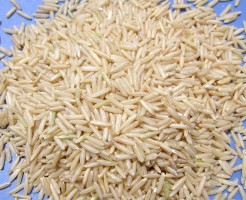Company Description
About Talha Associates
Welcome to Talha Associates, your trusted partner in international commerce. We take pride in being a dynamic and customer-centric company, specializing in the export and trade of high-quality goods across borders. With a commitment to excellence, reliability, and innovation, we stand as a beacon in the global marketplace.
Our Expertise: At Talha Associates, we bring a wealth of experience and expertise to the table. Our dedicated team of professionals is well-versed in the complexities of international trade, ensuring seamless transactions and timely deliveries. Whether you are looking to source premium products or expand your market reach, we have the knowledge and resources to make it happen.
Product Range: Our extensive product range spans various industries, including but not limited to Rice, garments, Hotels and Hospital supplies , From raw materials to finished goods, we offer a diverse portfolio that caters to the unique needs and preferences of our global clientele. Quality assurance is paramount, and we partner with reputable suppliers to deliver products that meet and exceed international standards.
Global Network: With a robust network of partners and collaborators worldwide, we have established a strong presence in key markets. Our global reach allows us to navigate the intricacies of international trade regulations and logistics, ensuring a smooth and efficient supply chain for our clients.
Customer-Centric Approach: At Talha Associates, customer satisfaction is at the core of our business philosophy. We strive to build lasting relationships by understanding the individual needs of our clients and tailoring our services accordingly. From personalized solutions to responsive communication, we prioritize the success of our partners.
Member Information
| Business Type | : |
|
| Founded in | : | 2008 |
| Employees | : | 11-50 |
| Member Since | : | 19 Nov 2023 |
| Membership Type | : | Free Member |
| Business Category | : | Agro & Agriculture |
Company Overview
- Exporter
- Trading
Define specific, measurable, achievable, relevant, and time-bound (SMART) quality objectives that align with the organization's overall goals.
Responsibilities:
Clearly outline the responsibilities of individuals or departments involved in quality control, including management, quality assurance teams, and production teams.
Quality Standards:
Specify the quality standards or specifications that products or services must meet. This can include industry standards, regulatory requirements, and internal quality benchmarks.
Process Control:
Detail the processes and procedures for controlling and monitoring each stage of production or service delivery to ensure consistency and conformity to quality standards.
Inspection and Testing:
Define the methods and frequency of inspections and testing to be carried out during and after production. This may involve both in-process and final product inspections.
Documentation:
Establish guidelines for documenting quality-related information, including specifications, procedures, inspection records, and corrective actions.
Training:
Outline the training requirements for employees involved in production, quality control, and other relevant areas. Ensure that employees are adequately trained to perform their tasks in accordance with quality standards.
Continuous Improvement:
Emphasize the organization's commitment to continuous improvement. Encourage employees to identify opportunities for improvement and implement corrective and preventive actions.
Supplier Quality:
Address the quality requirements for materials and components supplied by external vendors. Establish criteria for evaluating and approving suppliers.
Non-Conformance Handling:
Describe the procedures for handling non-conforming products or services, including the identification, documentation, and corrective actions to be taken.
Communication:
Define how information related to quality is communicated within the organization. This includes reporting procedures, feedback mechanisms, and communication channels.
Monitoring and Measurement:
Specify the methods for monitoring and measuring key performance indicators related to quality. This can include customer satisfaction surveys, defect rates, and other relevant metrics.


